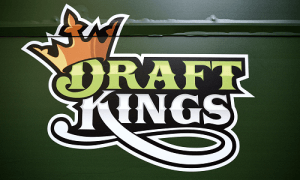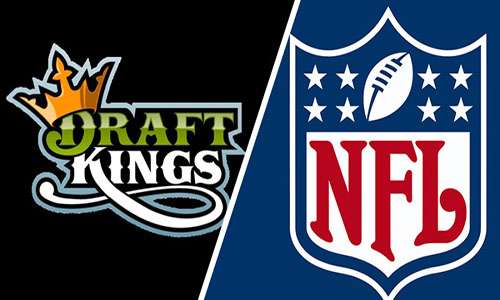DraftKings Investigating Possible Collusion in Headline NFL Contest
Well, isn’t this just wonderful for the daily fantasy sports industry? According to a Wall Street Journal report last week, DFS leader DraftKings is investigating a possible case of collusion involving the winner of its weekly “Fantasy Football Millionaire” contest, the site’s most lucrative contest of the week in any sport.
Despite the hand-wringing implied by my first sentence, this is not necessarily something that would reflect poorly on the DFS industry, aside from shining a light on how easy it is to collude.
The “Fantasy Football Millionaire” is a $20 buy-in (er…entry fee) NFL contest with a $4,444,444 guaranteed prize pool and $1,000,000 guaranteed to the winner. A maximum of 150 entries are permitted per player. In Week 3 of the NFL season, this contest drew 256,904 entries; approximately one-third were submitted by players who only paid for one entry. The other two-third entries were from players who submitted two or more lineups.
 The winner of the “Fantasy Football Millionaire” in Week 3 was Martin “papagates” Crowley, one of the top DFS players in the world. His brother, Tom “chipotleaddict” Crowley, won DraftKings’ top NFL contest in October 2015; both players are ranked in the top ten on Rotogrinders.com.
The winner of the “Fantasy Football Millionaire” in Week 3 was Martin “papagates” Crowley, one of the top DFS players in the world. His brother, Tom “chipotleaddict” Crowley, won DraftKings’ top NFL contest in October 2015; both players are ranked in the top ten on Rotogrinders.com.
In a forum post on Rotogrinders last week, DFS community members speculated that the Crowleys may have been colluding, and not just in the big NFL contest. It was found that in many large contests in which the two men submit them maximum number of entries, none of their lineups overlap. This would seem to indicate that they shared information to be sure there was no overlap in their entries, something that would be a violation of DraftKings’ Community Guidelines.
In said Community Guidelines, the first “unacceptable behavior” listed is “Group play behavior designed to gain an unfair advantage over others.”
DraftKings adds the further detail, “Team-building a lineup, or a set of complementary lineups which serve to work together, to execute a strategy that may create any unfair advantage over individual play.”
Submitting sets of non-overlapping lineups could also be seen as a way to get around the entry limit or as a form of multi-accounting.
Thus, if the Crowleys were strategizing together and intentionally submitted lineups that included none that were identical.
The Wall Street Journal reached out to DraftKings’ head of compliance Jennifer Aguiar, who said, “We are in the process of an ongoing investigation.”
The company noted that it had yet to be determined if the two players did anything wrong. DraftKings also told the Wall Street Journal that its systems detected “possible issues” with the Crowleys’ submissions before the DFS community jumped on it.
DraftKings appreciates the community looking out, though. Spokesman Jason Alderman said, “We really value our community members and their ability to self-police.”
For their part, the Crowleys say they did nothing wrong. Martin said, “I can understand why people might be concerned,” but that while they often talk strategy, they did not have much communication the week of the contest in question and never discuss specific lineups with each other.
Martin said that he was “stunned and obviously very upset” that he and his brother are suspected of funny business.
Interestingly, a third-party came forward last week and presented evidence on Rotogrinders that shows the Crowleys likely did not collude. David Stetler, the founder of fantasycruncher.com, a site which allows players to create DFS lineups based on player projections, said that both Martin and Tom Crowley used his service and that their usage pattern would indicate that they created their lineups separately.
Without divulging specifics on a public forum, Stetler said that each brother logged into his site from different places and different times and uploaded different sets of projections for their NFL lineups. They also downloaded separate files containing 150 lineups. Thus, Stetler believes, especially because their projections that were used to create the lineups were different, that the Crowleys did not collude.
As mentioned, DraftKings has not determined guilt yet; its investigation is ongoing. To my early point, though this is another piece of negative DFS news, it does not necessarily reflect poorly on the industry. In this case, DraftKings’ internal systems flagged the Crowleys for potentially sketchy play and the company is now looking into the matter. Of course, one could also argue that collusion is too easy in DFS and allowing players a hundred entries or more is one of the bricks at the foundation of the problems DFS has had over the past year.



















COMMENTS